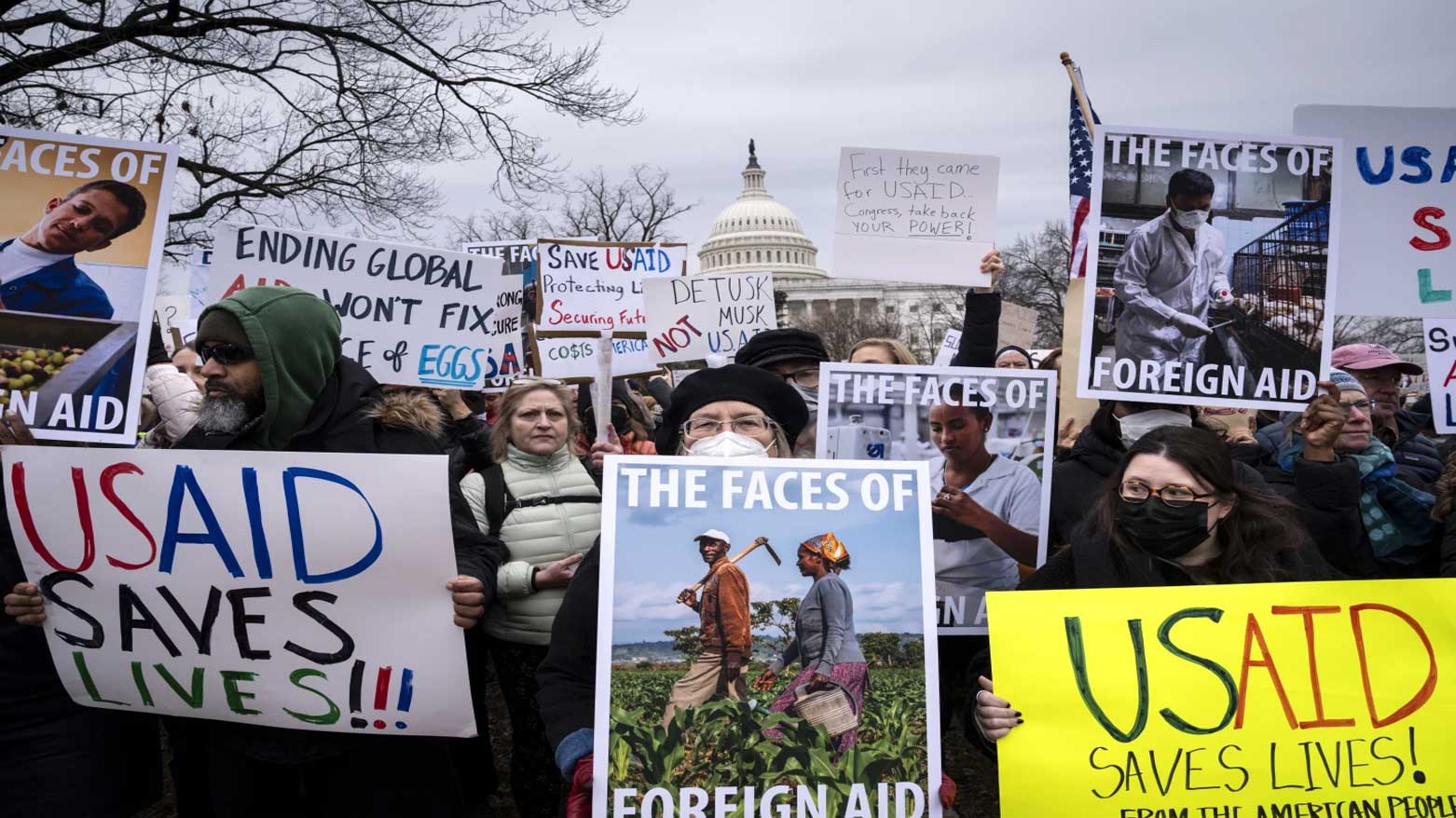USAID employees are given 15 minutes to clear their workspaces as the agency gets dismantled
Many newly fired USAID employees found the administration’s retrieval terms insulting. Thousands of dismissed staff were screened by security, escorted to their workspaces, and given only 15 minutes to collect their belongings.

ERBIL (Kurdistan24) – Thousands of U.S. Agency for International Development (USAID) employees who have been fired or placed on leave as part of the Trump administration’s dismantling of the agency have been given a brief window on Thursday and Friday to retrieve their personal belongings from their workspaces.
USAID placed 4,080 employees on leave earlier this week, alongside a “reduction in force” that will impact an additional 1,600 staff members, according to a statement from a State Department spokesperson. The dismissals and administrative leave orders leave only a fraction of USAID employees in their roles, significantly curtailing the agency’s operations.
The restructuring is part of a broader initiative led by President Donald Trump and the Department of Government Efficiency, a project backed by Elon Musk, aimed at drastically reducing the size of the federal government. USAID has been a primary target of these cuts, with the administration asserting that its restructuring efforts align with the president’s agenda, aiming to enhance efficiency and refocus resources on priorities deemed more beneficial to U.S. interests
Controversial Dismissals and Security Protocols
Many newly fired USAID employees found the administration’s retrieval terms insulting. Thousands of dismissed staff were screened by security, escorted to their workspaces, and given only 15 minutes to collect their belongings, The Associated Press (AP) reported.
A notice posted on the agency’s website detailed security measures for the departing employees, including explicit instructions prohibiting the possession of weapons such as firearms, “spear guns,” and “hand grenades.” Employees placed on administrative leave were instructed to retain their USAID-issued materials, including diplomatic passports until they were formally separated from the agency.
The administration has also moved to eliminate over 90% of USAID’s foreign aid contracts, amounting to a withdrawal of approximately $60 billion in assistance worldwide. The abrupt shutdown of USAID’s activities has raised concerns among lawmakers and international aid organizations regarding the potential humanitarian impact.
Legal Challenges and Congressional Inaction
Despite facing multiple legal challenges, the Trump administration’s efforts to shut down USAID have largely proceeded without intervention from Congress, which originally authorized the agency and its funding. A recent Congressional Research Service report stated that congressional authorization is required to “abolish, move, or consolidate USAID,” but Republican majorities in the House and Senate have not moved to challenge the administration’s actions.
A federal judge recently ordered the administration to release billions of dollars in frozen foreign aid funds, citing a lack of compliance with previous court orders. However, the Supreme Court has temporarily blocked that order, with Chief Justice John Roberts stating that the ruling will remain on hold until further review.
Political Fallout and Responses
The dismissals have drawn criticism from Democratic lawmakers, including Virginia Representative Gerald Connolly, who condemned the actions as “unwarranted and unprecedented.” Connolly emphasized that USAID employees play a crucial role in global development and humanitarian assistance, saving “millions of lives every year.”
The restructuring of USAID represents one of the most dramatic reductions of a U.S. government agency in recent history. With the agency’s funding slashed and most of its workforce removed, the future of U.S. foreign aid remains uncertain.